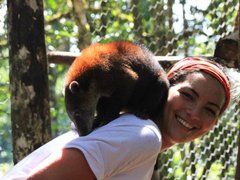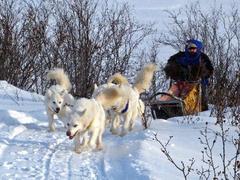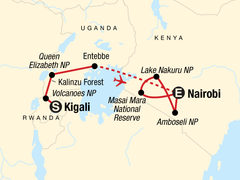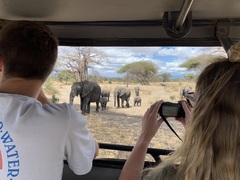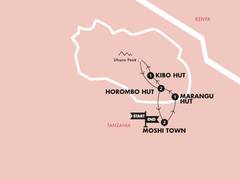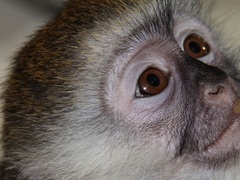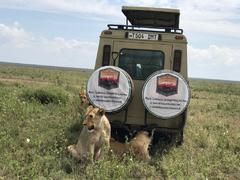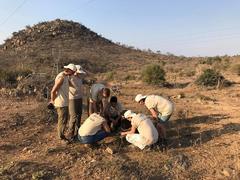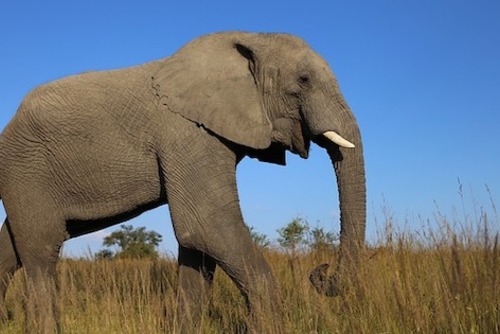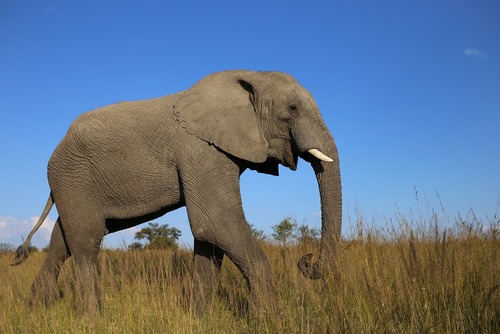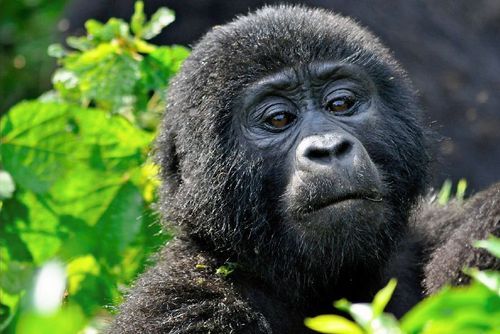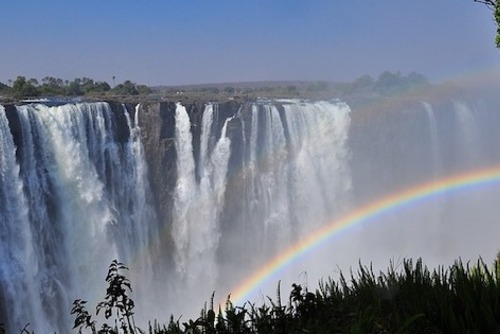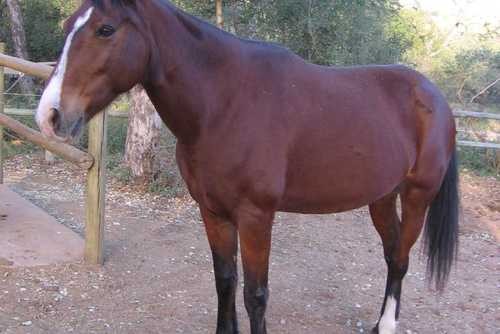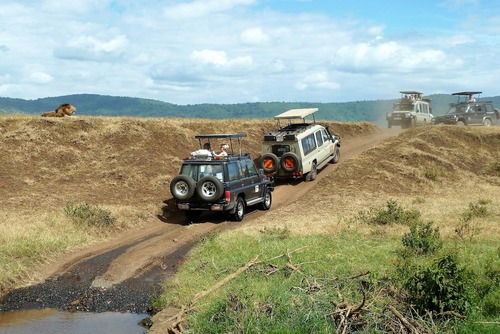There is no such thing as a typical day at The Viktory Project, (VIKTORY stands for Volunteers In Kariba Targetting Orphanages, Rehabilitation of wildlife and Youth education) but these are activities which you will almost certainly be involved with during your stay.
Whilst taking part in The Viktory Project, you will be accommodated at Warthogs Bush Camp, in a comfortable, fully serviced cottage on the shores of the magical Lake Kariba. All your meals will be served in our restaurant at Warthogs Bush Camp, your home from home during your stay.
All we ask from our volunteers is that they have a passion for the environment and those who care about the impoverished and the needy within our society and have a burning desire to uplift those who are less fortunate than ourselves.
Kariba is truly a beautiful destination. The shoreline vegetation of the lake consists mostly of rich grassland with natural bush and trees, a preferred site for elephants and regular visitors to Warthogs, particularly during the dry season.
The local people are extremely friendly, have a great sense of humour, one of the most literate nations in Africa and deserve a chance to uplift themselves. We firmly believe that, should you choose The VIKTORY Project, you will be very glad you did, as you will be working in one of the last remaining Edens of unspoiled Africa.
The iconic Lake Kariba is over 223kms long and over 40kms wide, with a maximum depth of 97m. It is a reservoir for hydroelectric power supplied to both Zambia and Zimbabwe and is the world's largest man-made reservoir. The dam wall was built between 1955 & 1959, and the lake was filled (from the dammed magnificent Zambezi River) from 1958 through 1963.
Zimbabweans are renowned for their hospitality and we hope you will carry that message away with you when you leave, which we are sure you will do - and hopefully, you will return again and again!
How It Works
The following are some of the tasks that volunteers are most likely to be involved in - there is no such thing as a "typical" day in the bush, so please note that, depending on where our help is required, this programme has to be flexible, so we would ask our volunteers to be flexible too.
Conservation
- Look for tracks and signs of animal movement and identify them. Track and locate wildlife with an experienced guide. Learn fascinating facts while you monitor and observe their behaviour and feeding patterns.
- Learn all about the flora and fauna of the area from your qualified guides, who, if you are lucky, may just teach you a bit of bush-craft as well.
- Observe and record (in particular) elephant behaviour to better understand their feeding habits and relationships, particularly in view of the close proximity of humans in their environment.
- Assist in projects such as the construction of a rehabilitation centre for the recuperation of injured animals, which is currently desperately needed.
Anti Poaching & Security
- Undertake snare patrols and anti-poaching monitoring - check for evidence of poaching and collect snares and traps. This minimises or mitigates the poaching of small and large animals in the area and provides support to the dedicated anti-poaching team (KAWFT) and National Parks.
- Undertake patrols around and on Lake Kariba to prevent overfishing and poaching, which is currently rife in the area.
- Assist, as and when required, KAWFT (Kariba Animal Welfare Fund Trust), Aware Trust (Vets) and National Parks, by going out on calls of animals caught in snares and/or human inflicted wounded wild animals.
Lake Kariba National Park Management
- Help with litter collection along roads, build fireguards.
- Re-planting of indigenous trees in deforested areas.
- Removal of alien species.
- Monitor the condition and health of wildlife.
- Game counts by foot and vehicle.
- Educating the community about stopping the burning of indigenous bush, which is currently in practice, on an annual basis, during the winter months.
Community, Teaching & Cultural Activities
We believe that wildlife conservation goes hand in hand with community education and that this sharing of knowledge is the key to the future of Africa’s wildlife heritage. Volunteers will work with community leaders and schools to share their passion for conservation and the environment.
- Assist teachers with English teaching for children.
- Play sports and games with the children.
- Teach the children about the importance of looking after the environment through song and dance or lessons of your own.
- Assist with the ongoing education of the community for the necessity of recycling as well as growing organic food for themselves.
- Look at starting a community project growing immunity enhancing herbs/plants in order to assist those afflicted with HIV.
- Assist the community, as and when required, with construction works, shopfitting and/or painting of classrooms, clinics etc.
A Typical Day
A typical day in the life of a volunteer with The VIKTORY Project would run something like this :
As we are involved in both social and wildlife projects, we will generally split our time, for the 5.5 (Monday morning until Saturday 12h00) days that we work, spending, typically, 3:2 days on environmental and wildlife matters to community service one week and then changing to a 2:3 rotation on community service to environmental and wildlife matters the following week.
As explained above, this can change at any time during your stay with us - we have no idea when we may be needed to go on call out to rescue a snared or wounded animal and the same goes for the periods that schools are on holiday, where our work will move from the classroom to other projects within the community such as organic vegetable and herb gardens, repairs and maintenance on community projects, etc.
In terms of your commitment, time-wise, during your stay with us, the general rule of thumb (remember flexibility is the name of the game here!) would work as follows:
- 06h00-08h30 Rise and shine and head out to start with whatever job we have been allocated for that day
- 08h30-10h00 Breakfast back at camp (when possible) - there may be times when we are out in the field when a packed breakfast may be given
- 10h00-12h30 Working at whatever project we have on for that day.
- 12h30 - 14h30 Lunch and a siesta, should you like that (often needed after working in the heat!!)
- 14h30 - 16h30 Working at whatever project we have on for that day
- 16h30 onwards - Time to relax, unwind and discuss your achievements with your fellow volunteers, have a swim, a cold drink or whatever you wish to do !
- 18h30 onwards - Dinner will be available (self service) from this time onwards - relax, enjoy your evening, have a good night's rest and ease those aching muscles into bed before the day starts again!
Free Time Activities
There are numerous activities on offer in and around lake Kariba, all of which can be arranged through us (at your own expense) either before you arrive or once you are with us, but will be at your own cost include, but are not limited to, the following :
- Houseboat trips on Lake Kariba
- Night time Game Drives
- Sailing trips on Lake Kariba
- Game viewing speedboat trips on the Lake
- Fishing speedboat trips on the Lake
- Canoeing down the Zambezi with experienced guides
- Visit to the one of the most spectacular unspoiled wild areas, namely, Mana Pools National Park


